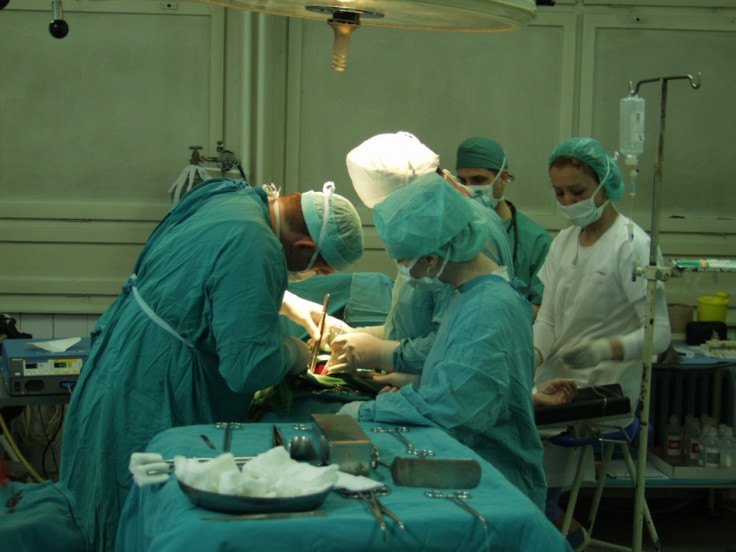Baby Saved by World’s Smallest Artificial Heart in Italy [VIDEO]

The smallest artificial heart in history has saved the life of a 16-month-old baby in Rome. The operation was conducted in March and, after the baby has been in a stable condition for the two months, doctors have declared the operation a complete success.
The baby reportedly weighed only 5.5kg - almost half the 10.5kg average - when the operation took place at Bambino Gesu Children's Hospital, according to the healthcare website Medindia. Surgeons implanted a tiny titanium heart in the baby, which enabled it to survive for another 13 days, when a permanent heart donation became available.
Antonio Amodeo, the Italian heart surgeon who conducted the operation, told Reuters of the hospital's desire to conduct the groundbreaking procedure.
"The patient was in our intensive care unit since one month of age. So he was a mascot for us, he was one of us. Every day, every hour, for more than one year he was with us. So when we had a problem we couldn't do anything more than the best, as much as we can. So that's why we have been pushing so hard to do what has never been done before."
The artificial heart, which weighed only 11 grams, was invented by the American doctor Robert Jarvik, from whom the hospital sought permission for the procedure, along with that of the Italian health ministry, since it had previously only been used on animals.
The baby boy, whose identity has not been disclosed, suffered from dilated myocardiopathy, a chronic heart disorder that normally enlarges, thickens, and/or stiffens the fibres of the heart. Without the implant, the baby's weakened heart muscles would not have been able to pump blood effectively, resulting in irregular heartbeats and possibly even heart failure.
Prior to receiving the implant, the baby had also contracted a severe infection from a mechanical pump that had been fitted earlier to support his natural heart.
"This is a milestone because it can be possible now to have permanent implantable devices," Amodeo added.
© Copyright IBTimes 2025. All rights reserved.




















